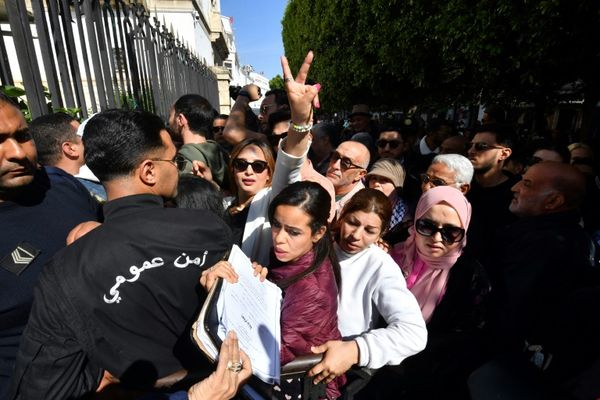BALTIMORE — Adnan Syed is now a Georgetown University employee, the private university in Washington, D.C., announced.
Georgetown hired Syed, who was freed after 23 years in a Maryland prison, as a program associate for the university’s Prisons and Justice Initiative. One of his responsibilities will be working with the initiative’s “Making an Exoneree” class, during which students reinvestigate decades-old wrongful convictions and create short documentaries about the cases to “help bring innocent people home from prison.”
“We are thrilled to welcome Adnan Syed to the Georgetown Prisons and Justice Initiative! PJI’s team and programming has so much to gain from Adnan’s experience, insight, and commitment to serving incarcerated people and returning citizens,” the initiative wrote Wednesday on Twitter.
Syed, 41, became a Georgetown student a year before his release as part of the university’s inaugural degree program for incarcerated students at Patuxent Institution in Jessup. In September, Syed walked out the front doors of Baltimore’s courthouse to a swarm of supporters after a judge overturned his conviction. He carried a folder with a Hoyas logo containing his schoolwork.
His case rose to international prominence after the famed podcast “Serial” documented his legal saga.
Syed, 41, was convicted in 2000 for the murder of Lee, his high school ex-girlfriend. Lee, 18, was strangled and later discovered in a shallow grave in Baltimore’s Leakin Park.
Baltimore Circuit Judge Melissa Phinn overturned Syed’s conviction in September after prosecutors raised doubts about the integrity of the conviction, citing their revelation of “alternative suspects” in the homicide that was never disclosed to his original defense attorney.
Baltimore State’s Attorney Marilyn Mosby’s office also used that hearing to discredit much of the original evidence that the jury used to find Syed guilty. State prosecutors and judges formerly involved in the case have disputed those claims.
Along with his new job as a program associate, Syed plans to continue his education at Georgetown University with hopes of attending law school, according to the university’s article.
A Georgetown University spokesperson responded to a request for comment with a link to the university’s article. In the article, Syed describes working for the university’s Prisons and Justice Initiative as “a full circle moment.”
“PJI changed my life. It changed my family’s life. Hopefully I can have the same kind of impact on others,” he said.
———







